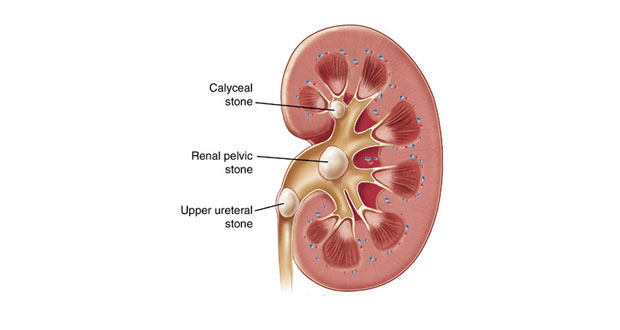You Can Prevent Kidney Stones with Lifestyle Changes
Many people mistakenly believe that there’s nothing you can do to prevent kidney stones. In reality, many risk factors are under your control, and many are remarkably simple.
- Drink Plenty of Water: The number one risk factor for kidney stones is not drinking enough water. If you aren’t drinking enough, your urine will simply have higher concentrations of substances that can form stones. We recommends drinking 3 litres every 24-hour period, but a simpler way to know if you are drinking enough water is to check the color of your urine; you want your urine to be a very light yellow. Every person’s water requirement is different, depending on your particular system and activity level, but simply keeping your urine light yellow will go a long way toward preventing kidney stones. Remember to increase your water intake whenever you increase your activity, and when you’re in a warmer climate.
- Make Sure You Get Adequate Magnesium: Magnesium is responsible for more than 300 biochemical reactions in your body, and deficiency of this mineral has been linked to kidney stones. Magnesium helps prevent calcium from combining with oxalate, which is the most common type of kidney stone. Green leafy vegetables like spinach and Swiss chard are excellent sources of magnesium, and one of the simplest ways to make sure you’re consuming enough of these is by juicing your vegetables. Vegetable juice is an excellent source of magnesium, as are some beans, nuts like almonds, and seeds, pumpkin seeds, sunflower seeds, and sesame seeds. Avocadoes are also a good source.
- Avoid Sugar, Including Fructose and Soda: A diet high in sugar can set you up for kidney stones, since sugar upsets the mineral relationships in your body by interfering with calcium and magnesium absorption. The consumption of unhealthy sugars and soda by children is a large factor in why children as young as age five or six are now developing kidney stones.
- Exercise: You’re more prone to kidney stones if you’re bedridden or very sedentary for a long period of time, partly because limited activity can cause your bones to release more calcium. Exercise will also help you to resolve high blood pressure, a condition that doubles your risk for kidney stones.
- Eat Calcium-Rich Foods (But be careful with supplements): In the past, kidney stone sufferers have been warned to avoid foods high in calcium, as calcium is a major component of the majority of kidney stones. However, there is now evidence that avoiding calcium may do more harm than good. It turns out that a diet rich in calcium actually blocks a chemical action that causes the formation of the stones. It binds with oxalates (from foods) in your intestine, which then prevents both from being absorbed into your blood and later transferred to your kidneys. So, urinary oxalates may be more important to formation of calcium-oxalate kidney stone crystals than is urinary calcium. It is important to note that it is the calcium from foods that is beneficial — not calcium supplements, which have actually been found to increase your risk of kidney stones by 20 percent.
- Avoid Non-Fermented Soy: Soybeans and soy-based foods may promote kidney stones in those prone to them, as they may contain high levels of oxalates, which can bind with calcium in your kidney to form kidney stones. This is just one reason why unfermented soy — the type found in soy milk, soy burgers, soy ice cream, and even tofu — is not a health food. If you’re interested in enjoying the health benefits of soy, choose fermented soy.
As you can see, the best and most natural ways to prevent kidney stones are some of the easiest, if you’re willing to make some lifestyle alterations.
 Urologist in Chennai | Robotic Urologist in India | Chennai Urology
Urologist in Chennai | Robotic Urologist in India | Chennai Urology

